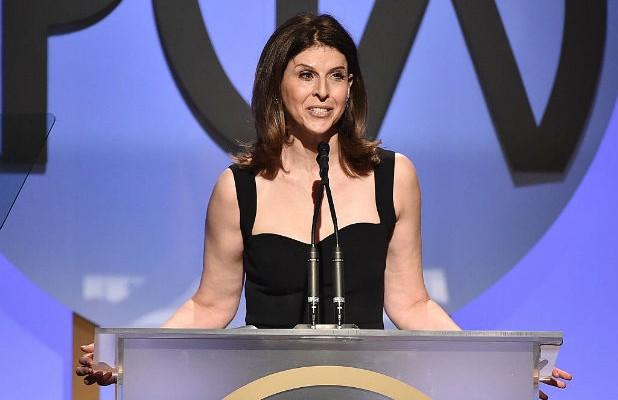Thank goodness for modern technology. Without it, the moving statement made by a 23-year-old woman who was sexually assaulted by a former Stanford swimmer might not have been heard beyond the four walls of the courtroom.
Exactly how her testimony — a 12-page, single-spaced letter read aloud in court — became public and very quickly went viral became clear Thursday.
It turns out that filmmaker Amy Ziering (inset), producer of the 2015 campus rape documentary “The Hunting Ground,’’ received a text message from Stanford law professor Michele Dauber, who was in the courtroom as the victim was reading the letter.
“Michelle said, ‘We have to get this out. Can you help?’?’’ Ziering, an Amherst College alum, told us Thursday.
She first wanted to check with the young woman to see if she’d object to having the letter made public. After all, it included a graphic description of the events of January 2015, when witnesses saw Brock Turner, a former Stanford student, assaulting an unconscious, half-naked woman behind a dumpster near a frat house.
“I told her I’d love to get her statement out, but I want your blessing every step of the way,’’ Ziering says. “She said, ‘Yes, just please keep me anonymous.’?’’
But where to send it for maximum effect? She knows and likes Buzzfeed’s Katie Baker, but would the website attract the most eyeballs?
“I asked my daughter, who’s much younger than me,’’ says Ziering. “She’s 23. I’m 53. I read The New York Times. What do I know?’’
Her daughter said Buzzfeed would indeed be best, so Ziering passed it along. That was last Thursday night. Buzzfeed posted the victim’s statement Friday morning and now it’s getting global attention. (There’s also focus on the Santa Clara Superior Court Judge Aaron Persky’s decision to sentence Turner to just six months in prison for a crime that could have resulted in a sentence of 14 years.)
“Seeing the public respond this way, and to have people believing the survivor and shaming and castigating the perpetrator, that’s pretty different,’’ Ziering said. “One person can make a difference.’’




